Samsung supplies self-driving, infotainment chips to global carmaker
The five memory chips are optimized for next-generation vehicles such as Tesla's Cybertruck, industry watchers say
By Dec 16, 2021 (Gmt+09:00)
LG Chem to sell water filter business to Glenwood PE for $692 million


KT&G eyes overseas M&A after rejecting activist fund's offer


Kyobo Life poised to buy Japan’s SBI Group-owned savings bank


StockX in merger talks with Naver’s online reseller Kream


Meritz backs half of ex-manager’s $210 mn hedge fund


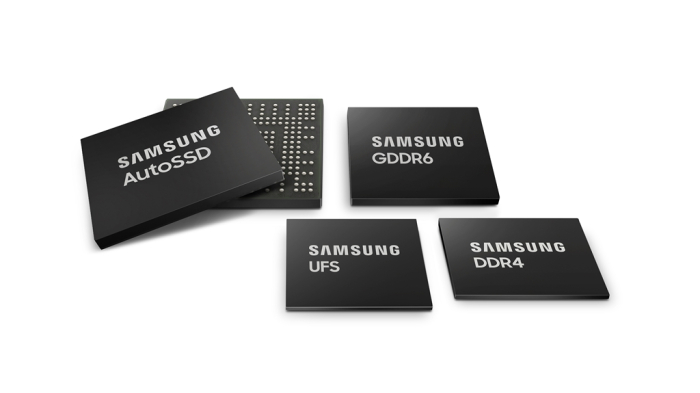
Samsung Electronics Co. is supplying advanced memory chips to an unidentified global automaker for use in its self-driving and infotainment systems.
The five auto chips are three memory solutions – 256 gigabyte (GB) PCle Gen3 NVMe solid-state drive (SSD), 2GB GDDR6 graphic DRAM and 2GB DDR4 DRAM – for high-performance infotainment systems, as well as 2GB GDDR6 graphic DRAM and 128GB universal flash storage (UFS) for autonomous driving systems.
Industry watchers said the global automaker could be Tesla Inc., given the unusually high capacity and performance levels that the Samsung auto chips offer.
The automotive memory chips are optimized for advanced infotainment and self-driving systems such as those in Tesla’s next-generation vehicles, they said.
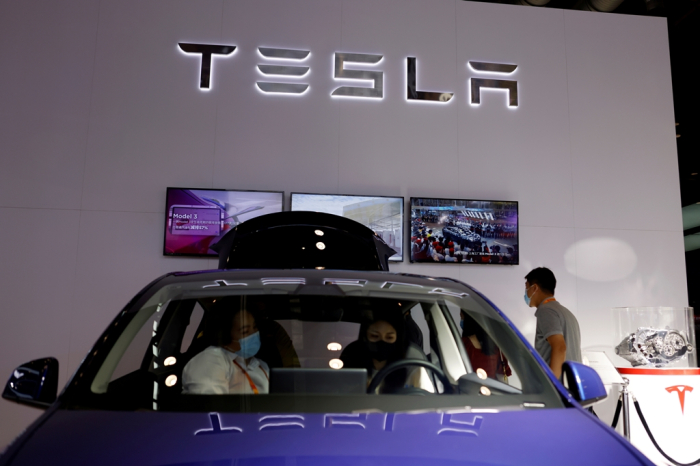
Samsung said it’s already producing the five chips in large quantities, but declined to identify the carmaker to which it is supplying those chips.
In late September, multiple industry sources said Samsung is manufacturing Tesla’s next-generation hardware 4 (HW 4.0) chip for its full self-driving (FSD) cars. Samsung makes the chip at its main Hwasung plant in Korea using the 7-nanometer processing technology, they said.
HW 4.0, dubbed the FSD Computer 2, is the successor to the HW 3.0 chip used in Tesla’s current vehicles. The HW 3.0 chip was manufactured by Samsung.
The HW 4.0 computer is widely expected to be mounted on the Tesla Cybertruck.
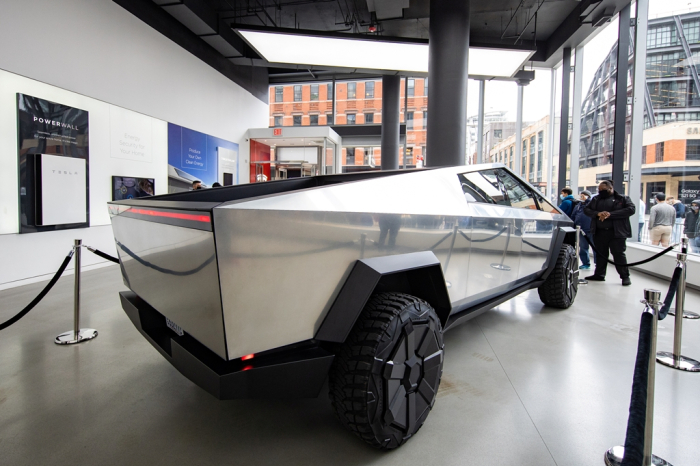
SERVER ON WHEELS
The five memory auto chips that Samsung unveiled on Thursday support advanced features in infotainment systems such as high-definition maps, video streaming and 3D gaming, as well as high-capacity and high-performance functions at autonomous driving systems.
Samsung said the 256GB SSD controller offers a sequential read speed of 2,100 megabytes per second and a sequential write speed of 300MB/s, seven and two times faster than the industry’s current embedded multi-media controller (eMMC), respectively.
Samsung’s new auto chips meet the AEC-Q100 qualification, the global automotive reliability standard, allowing them to operate stably in extreme temperatures ranging from minus 40 degrees Celsius to plus 105 degrees Celsius.
“With the recent proliferation of electric vehicles and the rapid advancement of infotainment and autonomous driving systems, the semiconductor automotive platform is facing a paradigm shift,” said Han Jin-man, head of Samsung’s memory global sales and marketing.
“What used to be a seven- to eight-year replacement cycle is now being compressed into a three- to four-year cycle, and at the same time, performance and capacity requirements are advancing to levels commonly found in servers.”
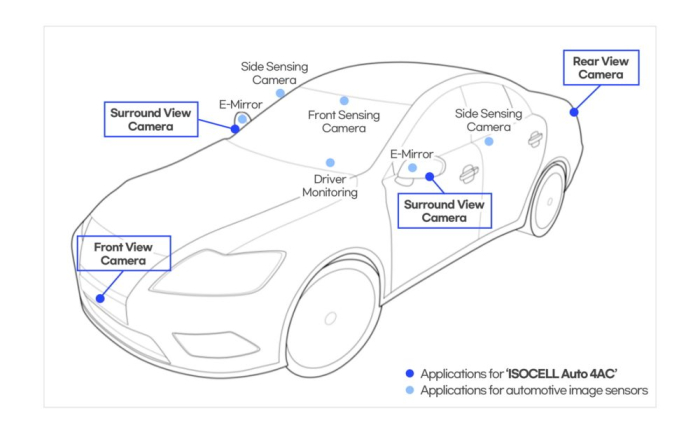
EXPANDING IN AUTO CHIP SECTOR
Analysts say Samsung’s release of five new auto chips is aimed at expanding its presence in the fast-growing smart and connected car component market.
Samsung has strengthened its high-tech chip lineup as global automakers are rapidly adopting autonomous and in-vehicle infotainment systems, which in turn raise the demand for advanced auto chips.
A self-driving car usually requires at least 2,000 chips compared with about 200-300 chips per vehicle for the current human driving models.
According to market researcher IHS Markit, the global auto chip market is forecast to grow at an average annual rate of 9% to $74 billion by 2026 from $45 billion early this year, with such chip demand projected to rise to 208.3 billion units by 2027 from 132.5 billion units this year.
Last month, Samsung said it is supplying one of its latest advanced chips to Volkswagen AG for the German carmaker’s in-vehicle infotainment system.
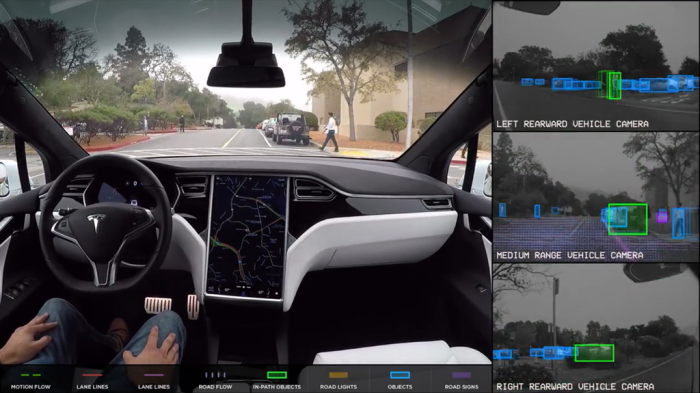
The Exynos Auto V7, already being produced in large quantities, is used in Volkswagen’s latest In Car Application Server (ICAS) 3.1, developed by Korea’s LG Electronics Inc.
In 2017, it supplied its Exynos Auto 8890 processor chip to Germany’s Audi AG. In 2019, Samsung also began supplying the German luxury car brand with the Exynos Auto V9 for its infotainment system.
In July of this year, Samsung unveiled the ISOCELL Auto 4AC, its first ISOCELL image sensor tailored for automotive applications. The chip is used in Hyundai Motor Co.'s vehicles.
“Our reinforced lineup of memory solutions will act as a major catalyst in further accelerating the shift toward the 'Server on Wheels' era,” said Samsung’s Han.
Write to Shin-Young Park at nyusos@hankyung.com
In-Soo Nam edited this article.
-
 Auto chipsSamsung’s new auto chip mounted in Volkswagen’s infotainment system
Auto chipsSamsung’s new auto chip mounted in Volkswagen’s infotainment systemNov 30, 2021 (Gmt+09:00)
2 Min read -
![[Exclusive] Samsung to make Tesla’s HW 4.0 self-driving auto chip](/data/ked/image/2021/09/23/ked202109230030.145x94.0.jpg) [Exclusive] Semiconductors[Exclusive] Samsung to make Tesla’s HW 4.0 self-driving auto chip
[Exclusive] Semiconductors[Exclusive] Samsung to make Tesla’s HW 4.0 self-driving auto chipSep 23, 2021 (Gmt+09:00)
4 Min read -
 Infotainment JVLG Electronics, Luxoft to launch car infotainment JV in January
Infotainment JVLG Electronics, Luxoft to launch car infotainment JV in JanuaryJan 13, 2021 (Gmt+09:00)
1 Min read -
 Tesla unveiling offers opportunity for Korean EV battery makers; shares down
Tesla unveiling offers opportunity for Korean EV battery makers; shares downSep 23, 2020 (Gmt+09:00)
2 Min read


